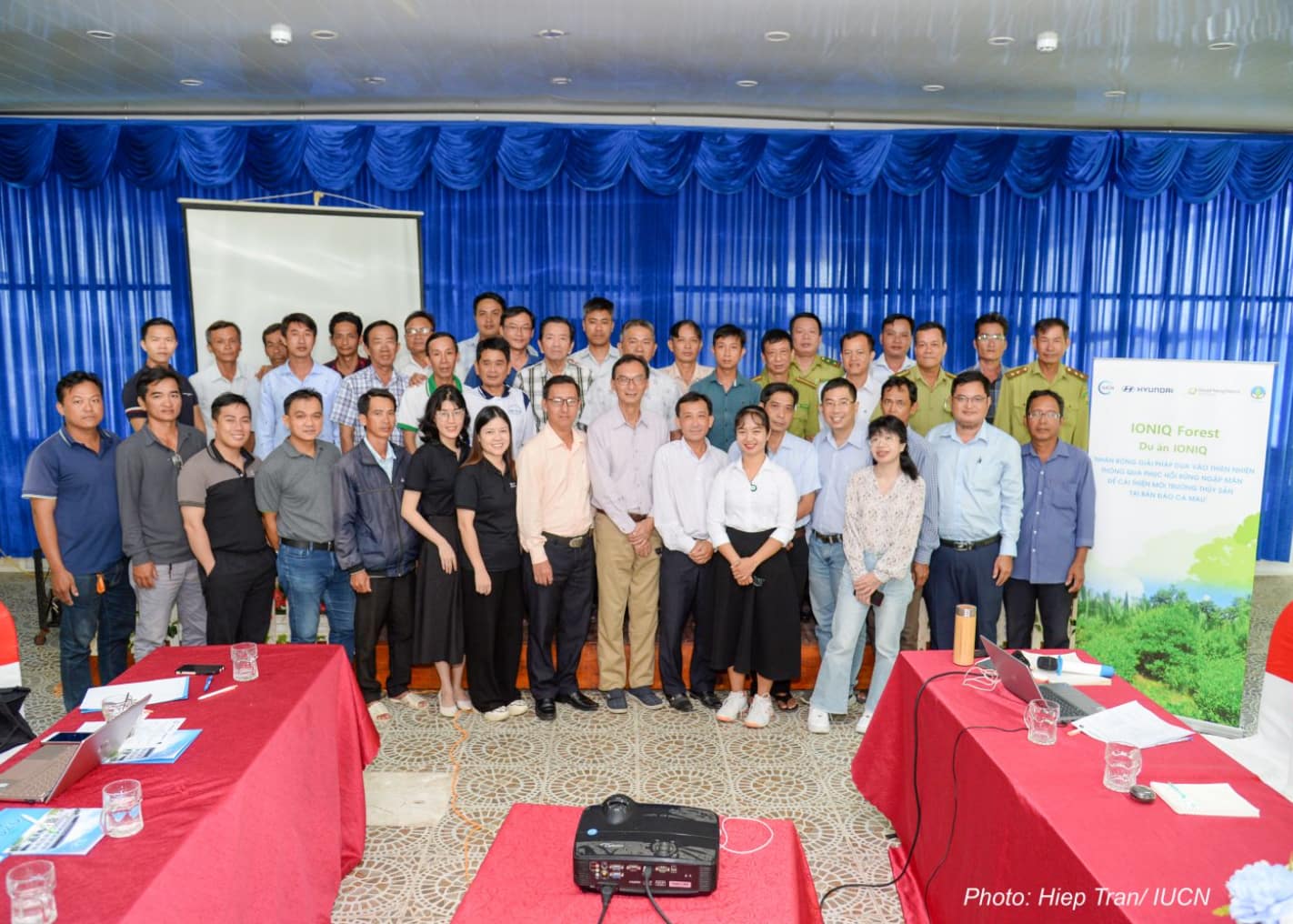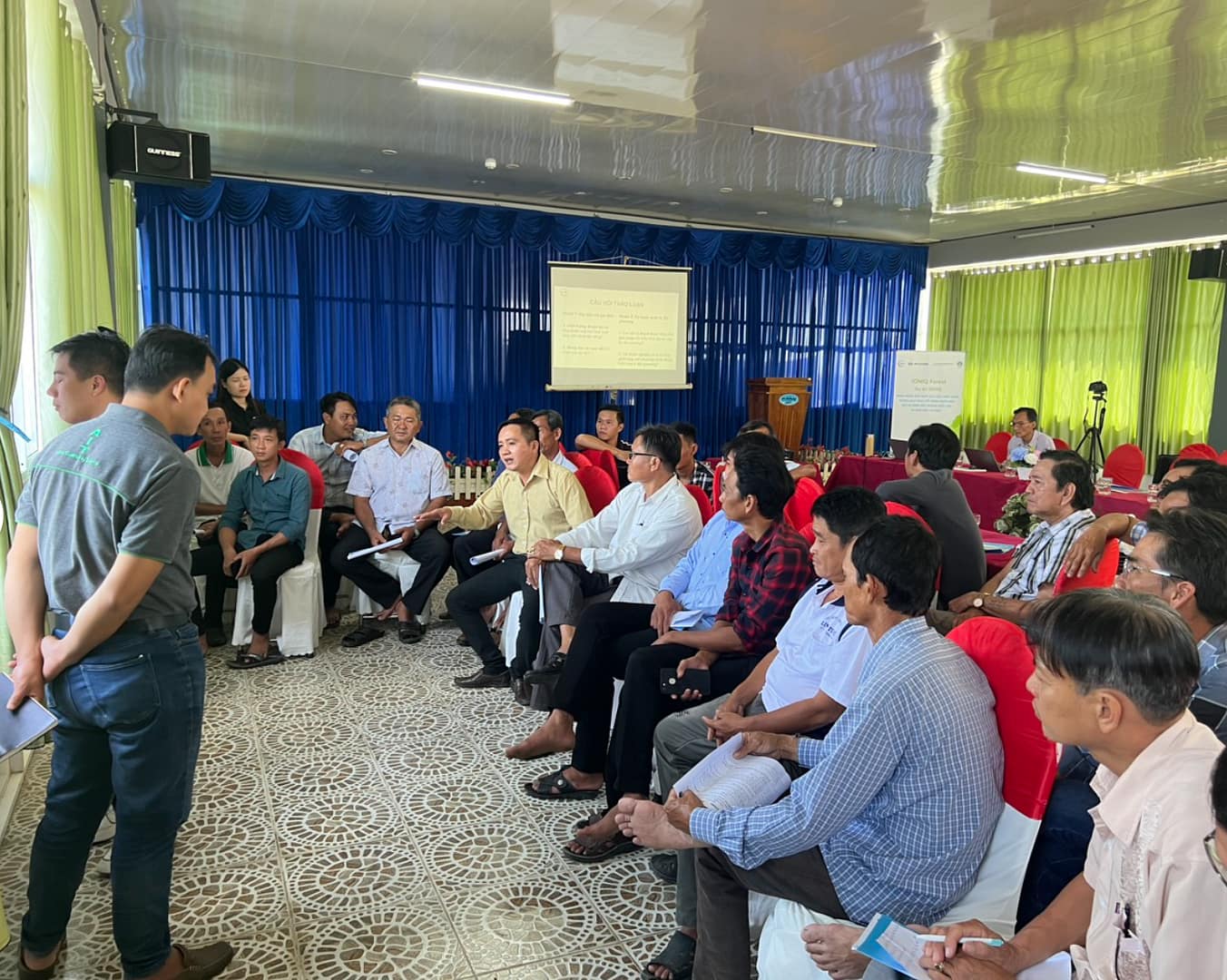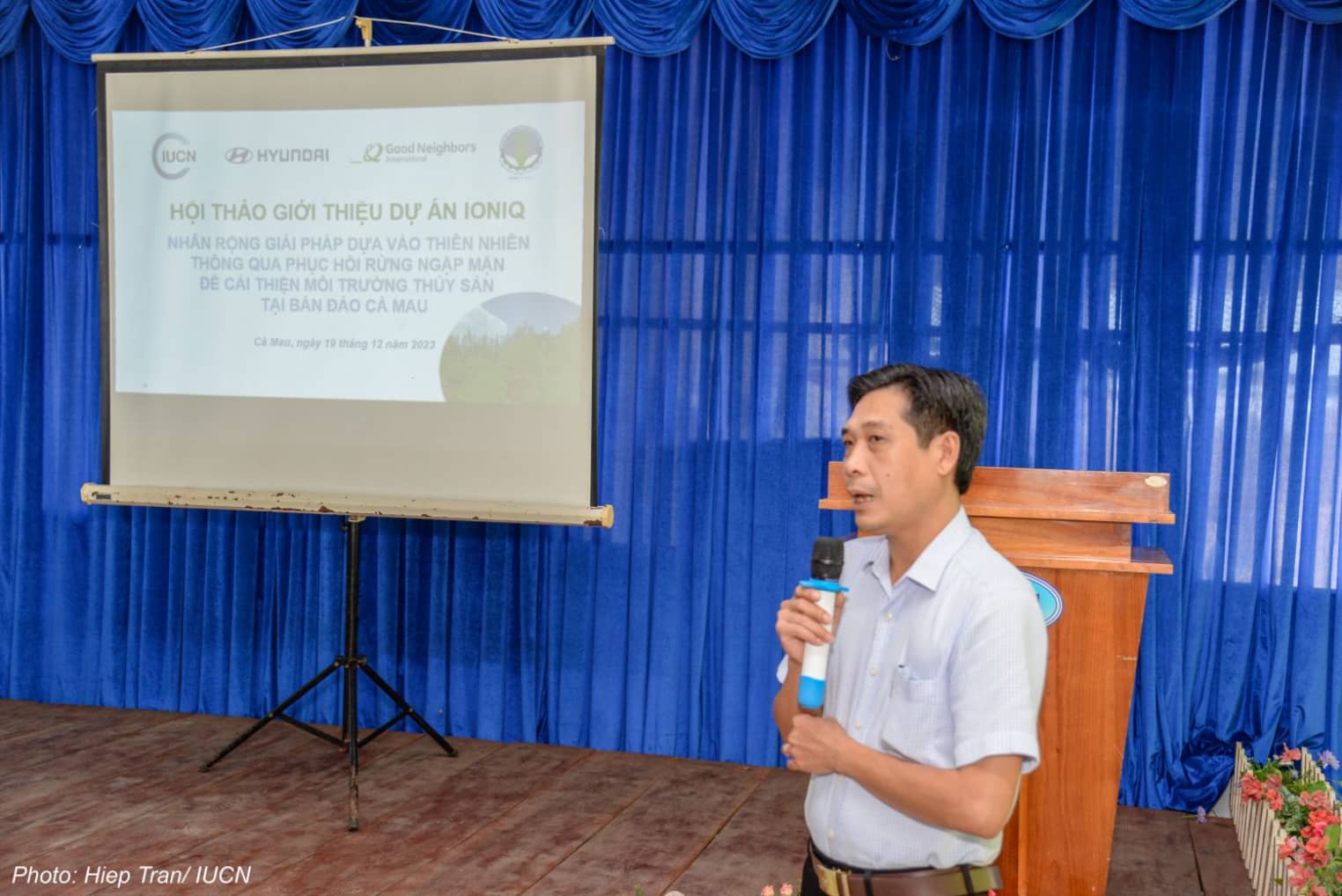
By: lediemquynh
Comments: 0
Introducing IONIQ mangrove restoration project in Ca Mau Province, Viet Nam
 On December 19, 2024, IUCN organised a consultation workshop on the mangrove restoration project in Ca Mau. The project is a 3-year partnership between IUCN, Hyundai Motor Company, and Good Neighbors International (GNI) to restore mangroves in the Mekong Delta on privately owned shrimp farms (red book).
On December 19, 2024, IUCN organised a consultation workshop on the mangrove restoration project in Ca Mau. The project is a 3-year partnership between IUCN, Hyundai Motor Company, and Good Neighbors International (GNI) to restore mangroves in the Mekong Delta on privately owned shrimp farms (red book).
In November 2023, the Provincial People’s Committee issued Decision No. 8914 assigning the Ca Mau Department of Agriculture and Rural Development (DARD) to be the government focal point and to work with IUCN on project approval.
The consultation was an opportunity to inform shrimp farmers and government officials of the project goal and strategy. During group discussions, participants identified opportunities and challenges for mangrove restoration on private farms. These showed that while farmers are interested in how to increase the productivity of mangrove polyculture models, officials are concerned about how to increase mangroves.
One solution is that farmers commit to planting and protecting Avicennia mangroves for at least five years if they can thin the trees frequently to feed shrimp. Truong Minh Thuan, Vice-Head of the Sub-DARD in Nam Can District, said that Avicennia leaves are popular natural shrimp food in extensive farms with a salinity level of 10-25 per thousand due to their fast decomposition. The sub-DARD has issued Decision No. 67 to plant Avicennia in extensive shrimp farms to improve productivity, which has been strongly supported by local farmers.

Mangrove planting on shrimp farms in protection or production forests (green book) is almost entirely Rhizophora because it is easy to plant and produces high-value timber, which is harvested on a 15-year cycle.

